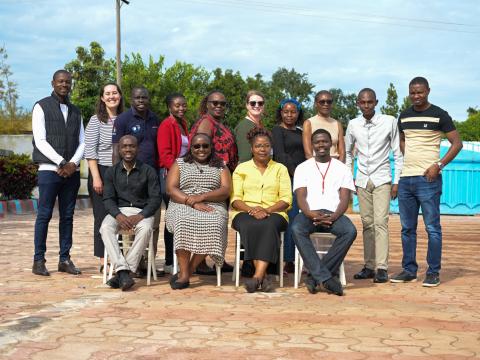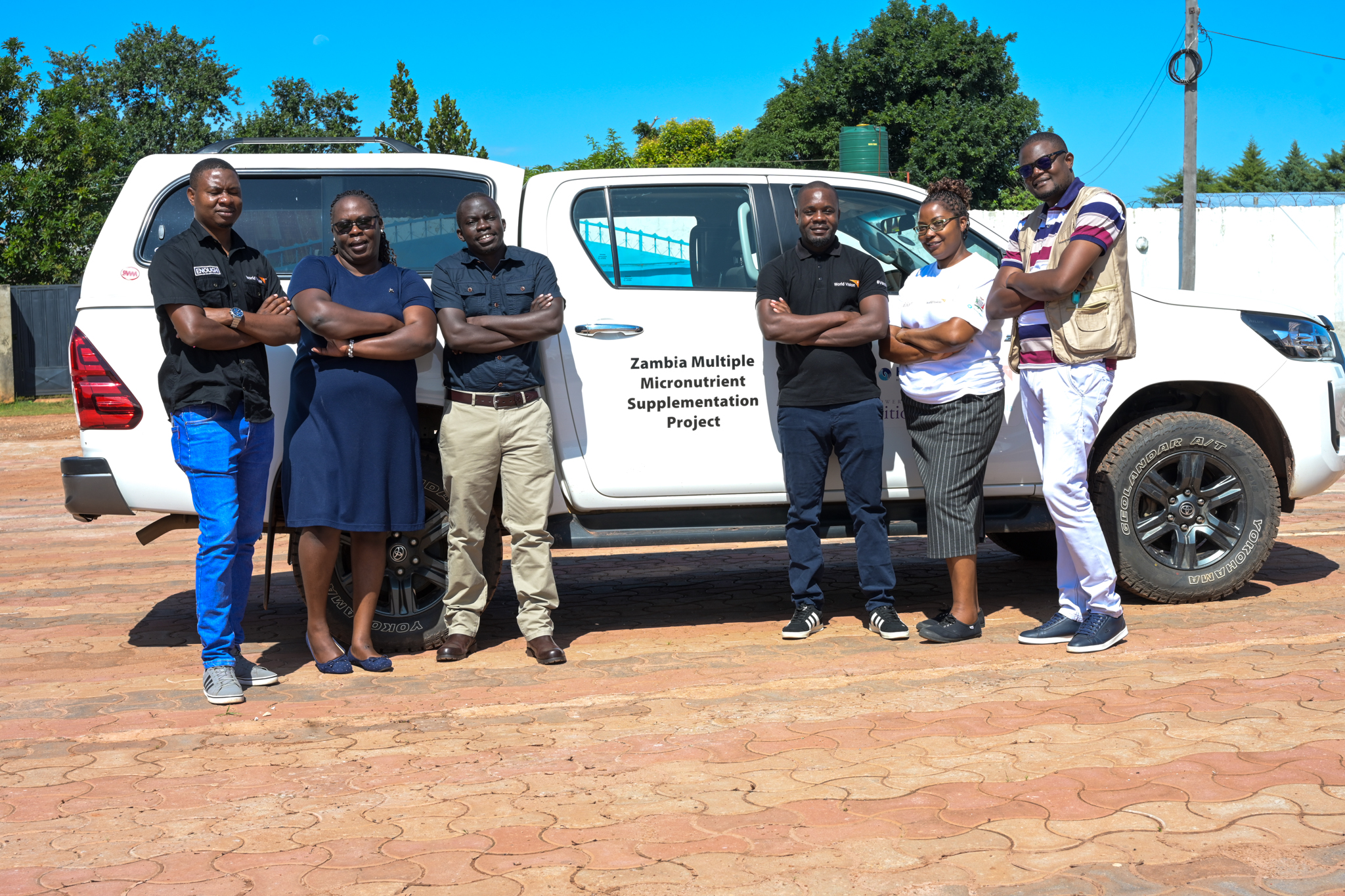Zambia Multiple Micronutrients Supplementation Project: Empowering Women and Driving Community Solutions for Maternal Nutrition

In many communities across Zambia, expectant mothers face an uphill battle in accessing the essential nutrients needed for a healthy pregnancy. Traditional antenatal care has long relied on iron and folic acid (IFA) supplements, but coverage gaps, sociocultural barriers, and adherence challenges have limited their effectiveness. This has left many pregnant and postpartum women vulnerable to micronutrient deficiencies, which can lead to complications such as anemia, low birth weight, and even maternal mortality.
Recognising this urgent need, the Zambia Multiple Micronutrient Supplementation (ZMMS) project took a bold step toward improving maternal nutrition. In 2024, the project’s formative research phase shed light on the barriers preventing the widespread uptake of multiple micronutrient supplements (MMS). The findings revealed critical gaps in the prenatal supplement distribution system and the need for a community-driven approach to ensure sustainable adoption.
A Human-Centered Solution
With research findings, the ZMMS project transitioned into its second phase, embracing a Human-Centered Design (HCD) approach. This innovative method shifts the power of decision-making to the very people affected - pregnant and postpartum women, traditional and religious leaders, community volunteers, and health professionals. By actively engaging these stakeholders in the design of interventions, World Vision, in partnership with Vitamin Angels and the Ministry of Health (MOH), is ensuring that solutions are practical and inclusive and embraced by the community.
"MMS is critical because it resonates very well with our programs at hand. It brings a lot of essential benefits, including iron and folic acid, among other key nutrients," said Daniel Sampa, Provincial Nutritionist-Northern.
To put this approach into action, a three-day HCD workshop was organized, bringing together participants from Lusaka, Chongwe, Mbala, Kasama, and Luwingu districts. The workshop provided a platform for pregnant and postpartum women to voice their challenges, while traditional and religious leaders contributed insights into cultural perceptions surrounding maternal nutrition. Community volunteers and health facility staff offered practical solutions for implementation, and representatives from the Zambia Agency of Persons with Disabilities (ZAPD) ensured that inclusivity remained a priority.

Through interactive discussions, prototyping sessions, and feedback loops, participants collaboratively designed interventions that could effectively enhance MMS uptake and adherence.
"The triple burden of malnutrition is significant among pregnant women in several countries. MMS is a proven, cost-effective, and efficient intervention. We believe that with World Vision, we will reach the most affected areas and women who will have a chance to benefit from this program," said Dr. Lucy Kanya, Senior Technical Director for Africa at Vitamin Angels.
Impact and Sustainability Through Partnerships
This initiative is more than just a workshop, it represents a shift from top-down decision-making to community-driven action. The insights gathered will shape evidence-based interventions, which will be piloted, tested, and refined before being scaled up nationally.
"We are working on social behavior because nutrition is a behavior. So, we are engaging different sectors, including women and other stakeholders, to ensure they have a say and own the process," explained Inyambo Mumbula Epilight consultancy, HCD consultant World Vision.
Beyond its immediate benefits, this approach fosters sustainability. By allowing communities to take ownership of solutions, the project ensures that maternal nutrition improvements last long after external support phases out.
"The project seeks to create evidence for MMS in the three provinces of Northern, southern and Lusaka to facilitate evidence-based decision making by government to transition from Iron and Folic Acid to MMS - through this process," said Miranda Mhone, Project Manager for ZMMS Project.
This collaborative effort between World Vision, Vitamin Angels, the Ministry of Health, and local communities demonstrates the power of partnerships in transforming maternal health. By working together and centering the voices of those most affected, Zambia is taking a critical step toward ensuring that every pregnant woman receives the essential nutrients needed for a healthy pregnancy and a brighter future for her child.